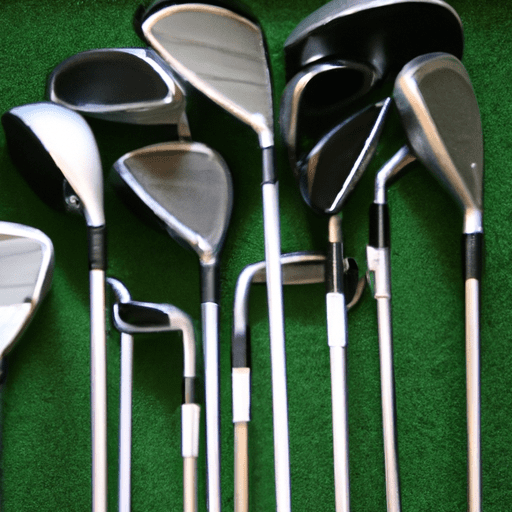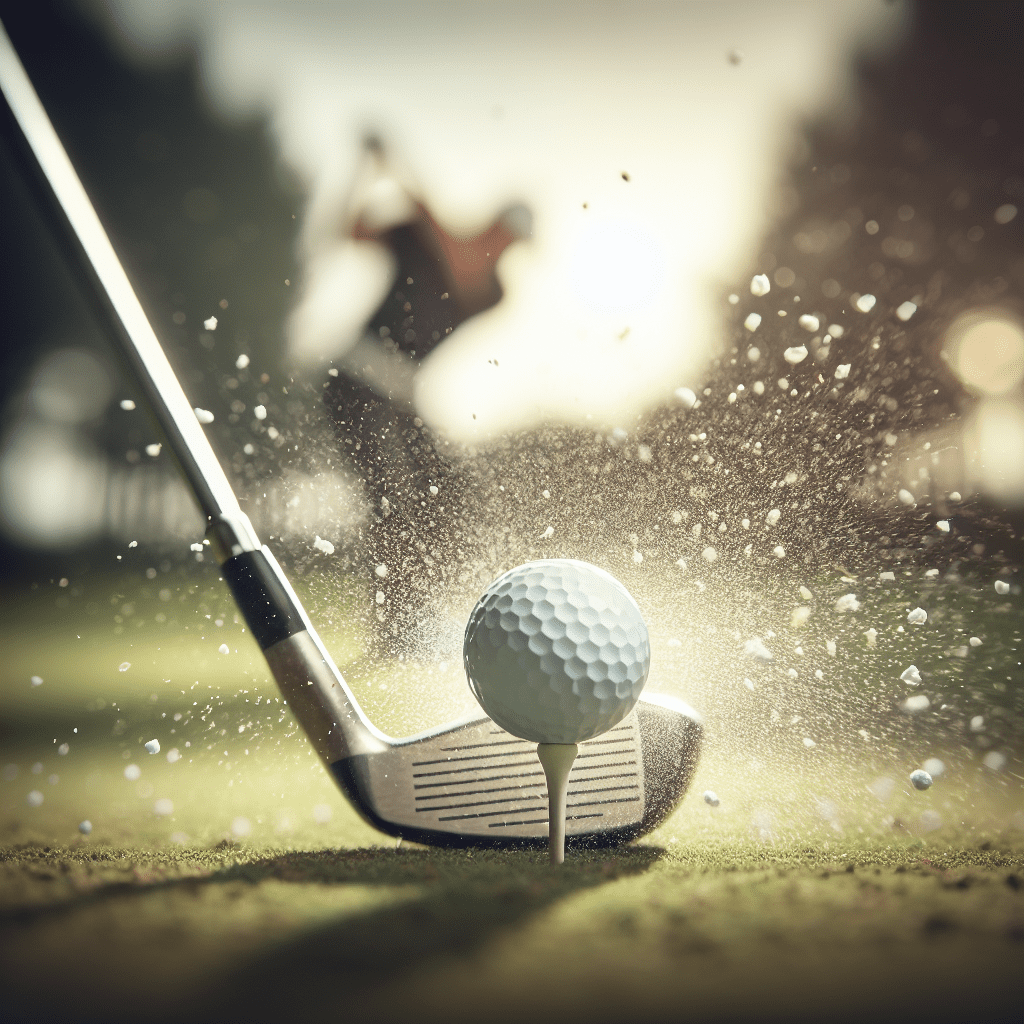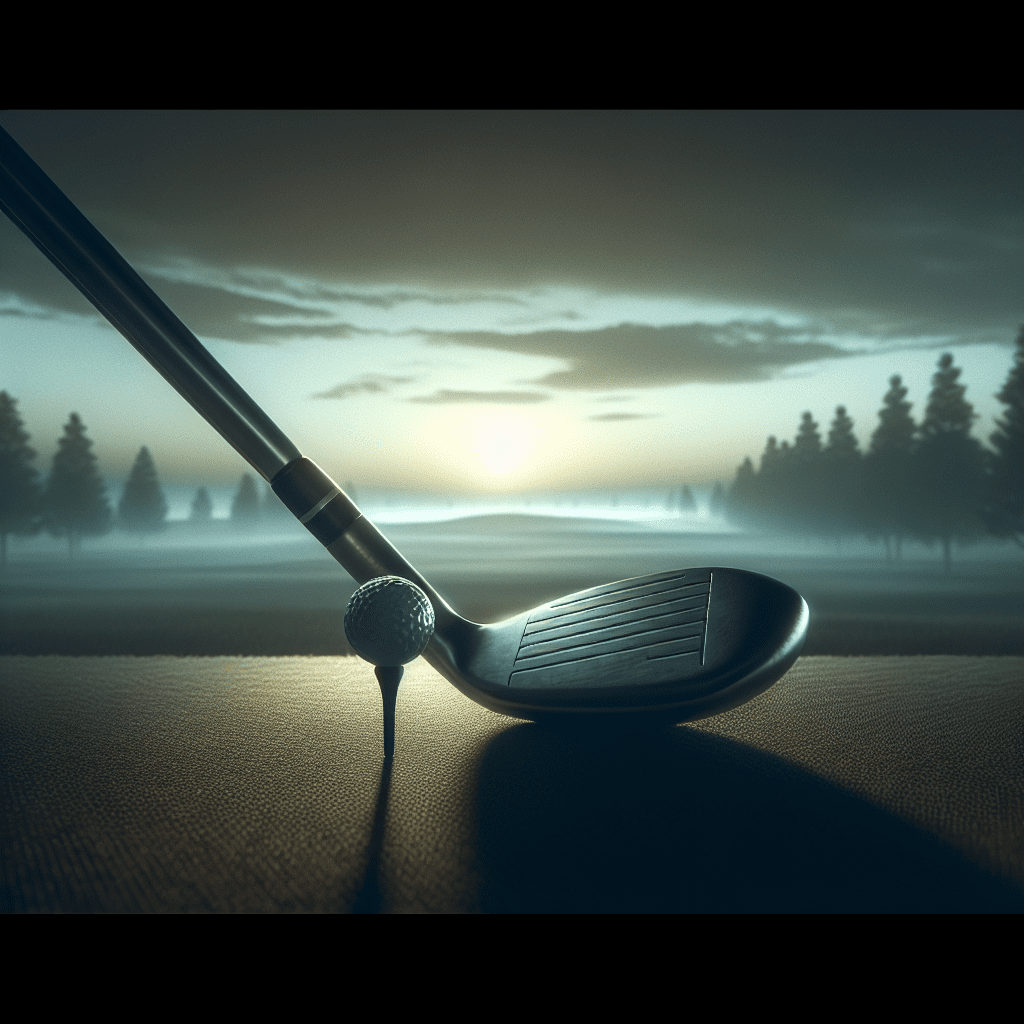If you're new to the exhilarating world of golf, one of the first things you'll need to do is choose the right set of clubs. But with so many options available, how do you know which clubs are best for a beginner like you? Fear not, as this article will guide you through the process of selecting the perfect golf clubs that suit your skill level, swing style, and overall golfing goals. From drivers and irons to putters and wedges, we'll explore the factors to consider and provide you with valuable insights to help you make a confident and informed choice. So let's tee off on this exciting journey to finding the ideal set of golf clubs for you!
Consider Your Budget
Decide on a budget
Before diving into the world of golf clubs, it's important to establish a budget. Set a reasonable spending limit that you are comfortable with. This will help narrow down your options and ensure that you don't overspend.
Research price ranges and quality
Once you have determined your budget, take some time to research the price ranges and quality of golf clubs. You want to find clubs that offer good value for the price. Look for reputable brands that are known for their quality craftsmanship and durability.
Look for good value
When choosing golf clubs, it's important to find a balance between price and quality. While it can be tempting to go for the cheapest option available, keep in mind that investing in a higher quality set of clubs can lead to better performance on the course. Look for clubs that offer good value for the price, ensuring that you get the most out of your investment.
Understand the Different Types of Clubs
Woods
Woods are typically used for long shots off the tee or fairway. They are named after the traditional wooden construction, although modern woods are now made from materials such as titanium or composite. Woods generally have larger clubheads with a low center of gravity, allowing for optimal distance and accuracy.
Irons
Irons are versatile clubs that are used for a variety of shots, including tee shots, fairway shots, and approach shots. They are often numbered from 3 to 9, with lower numbers indicating lower lofts and longer distances. Irons have a smaller clubhead and a narrower sole, which allows for better control and precision.
Wedges
Wedges are designed for shots around the green and short approach shots. They have a higher loft than irons, which helps the ball get in the air quickly and land softly on the green. Wedges come in different variations, including pitching wedges, sand wedges, and lob wedges, each with its own specific use.
Putters
Putters are used on the green to roll the ball into the hole. They have a flat clubhead, often with a face insert to provide a smooth and consistent roll. Putters come in various shapes and designs, allowing players to choose one that suits their personal preference and putting style.
Seek Professional Advice
Consult with a golf instructor
If you are a beginner, it's highly recommended to consult with a golf instructor. They can provide valuable insights into your swing mechanics and help you determine the right clubs for your skill level. A golf instructor can also assist you in selecting the appropriate shaft flex, grip size, and clubhead style, ensuring a proper fit for your swing.
Visit a golf club fitting specialist
Another option to consider is visiting a golf club fitting specialist. These professionals have the expertise and equipment to assess your swing and recommend clubs that are specifically tailored to your individual needs. They can analyze factors such as club length, lie angle, and clubhead weight to optimize your performance on the course. A fitting session can provide invaluable information that you may not be able to determine on your own.
Determine Your Skill Level
Assess your beginner status
Before choosing golf clubs, it's essential to honestly assess your beginner status. Have you just started playing golf, or have you been playing for a while? Understanding your skill level will help guide your club selection. Beginners may benefit from clubs that offer forgiveness and are easier to hit, while more experienced players may prefer clubs that offer more precision and control.
Consider your athleticism and coordination
Another factor to consider is your athleticism and coordination. Golf requires a combination of physical ability and hand-eye coordination. If you are naturally athletic and have good coordination, you may be able to handle clubs that require more precision. However, if you are less athletically inclined or have limited coordination, it's advisable to choose clubs that are more forgiving and easier to hit.
Choose the Right Club Length
Understand club length measurements
Club length is an important consideration when choosing golf clubs. The length of the club can influence your swing path and impact the accuracy and consistency of your shots. It is typically measured from the butt of the club to the sole of the clubhead. Longer clubs tend to generate more distance, but they can also be more difficult to control.
Consider your height and arm length
When determining the right club length for you, consider your height and arm length. Taller players may benefit from longer clubs, while shorter players may find shorter clubs easier to handle. It's crucial to find a club length that allows you to maintain a comfortable and balanced stance throughout your swing.
Select the Correct Clubhead Weight
Learn about clubhead weight
Clubhead weight refers to the mass of the clubhead, which can impact the feel and performance of the club. Heavier clubheads can help generate more power and distance, but they may be more difficult to swing for players with slower swing speeds. Lighter clubheads, on the other hand, can provide more control and are generally easier to swing.
Consider your strength and swing speed
When selecting the correct clubhead weight, consider your personal strength and swing speed. If you have a faster swing speed and good strength, you may be able to handle a heavier clubhead. However, if you have a slower swing speed or are lacking in strength, it's advisable to choose a clubhead with a lighter weight for better control and consistency.
Decide between New or Used Clubs
Evaluate the advantages and disadvantages
When choosing golf clubs, you have the option of purchasing new or used clubs. New clubs offer the latest technology, come with warranties, and give you the confidence of having a pristine set. However, they tend to be more expensive. On the other hand, used clubs can be more affordable and still offer good performance, but they may not have the same lifespan or warranty coverage as new clubs.
Consider your long-term commitment to the sport
Another factor to consider when deciding between new or used clubs is your long-term commitment to the sport. If you are just starting out and unsure if you will stick with golf long-term, used clubs may be a more cost-effective option. However, if you are confident that you will be playing golf regularly and want the latest technology, investing in new clubs can be a wise decision.
Try Out Different Clubs
Visit a golf equipment store
To get a feel for different golf clubs and find the ones that suit you best, consider visiting a golf equipment store. Many stores have demo clubs available for you to try out on a driving range or indoor simulator. Take advantage of this opportunity to swing different clubs and assess how they feel and perform.
Participate in club demos or rentals
Some golf courses or driving ranges offer club demos or rentals. This allows you to try out different clubs on the course or during a practice session. Renting clubs can be a cost-effective way to experiment with different brands and models before making a final purchase decision. Take note of how each club feels and performs in various situations to determine which ones are the best fit for your game.
Consider Forgiveness and Game Improvement
Look for clubs with larger clubheads
Forgiveness is an essential factor to consider when choosing golf clubs, particularly for beginners. Clubs with larger clubheads offer a bigger sweet spot, making it easier to achieve solid contact and straighter shots. Look for clubs that have a generous hitting surface, as they can help minimize the impact of mishits and improve your overall game.
Choose clubs with more forgiving features
In addition to larger clubheads, certain clubs offer specific forgiving features that can benefit beginners. For example, hybrids are often favored by beginners as they combine the characteristics of both irons and woods, providing the forgiveness of woods with the versatility of irons. Similarly, cavity back irons feature a cavity behind the clubface, allowing for more forgiveness and greater distance on off-center hits.
Think Long-Term
Consider the potential for club upgrades
When selecting golf clubs, it's important to consider the potential for future club upgrades. As you progress in the sport and improve your skills, you may find that your needs and preferences change. Choosing a brand or club model that offers a range of options can make it easier to upgrade individual clubs as needed without having to completely replace your entire set.
Research club resale value
Lastly, it's worth researching the resale value of the clubs you are considering. While not a major factor in club selection, it's good to know that if you decide to upgrade or change clubs in the future, certain brands or models may hold their value better than others. This can impact the overall cost of your investment in the long run.






